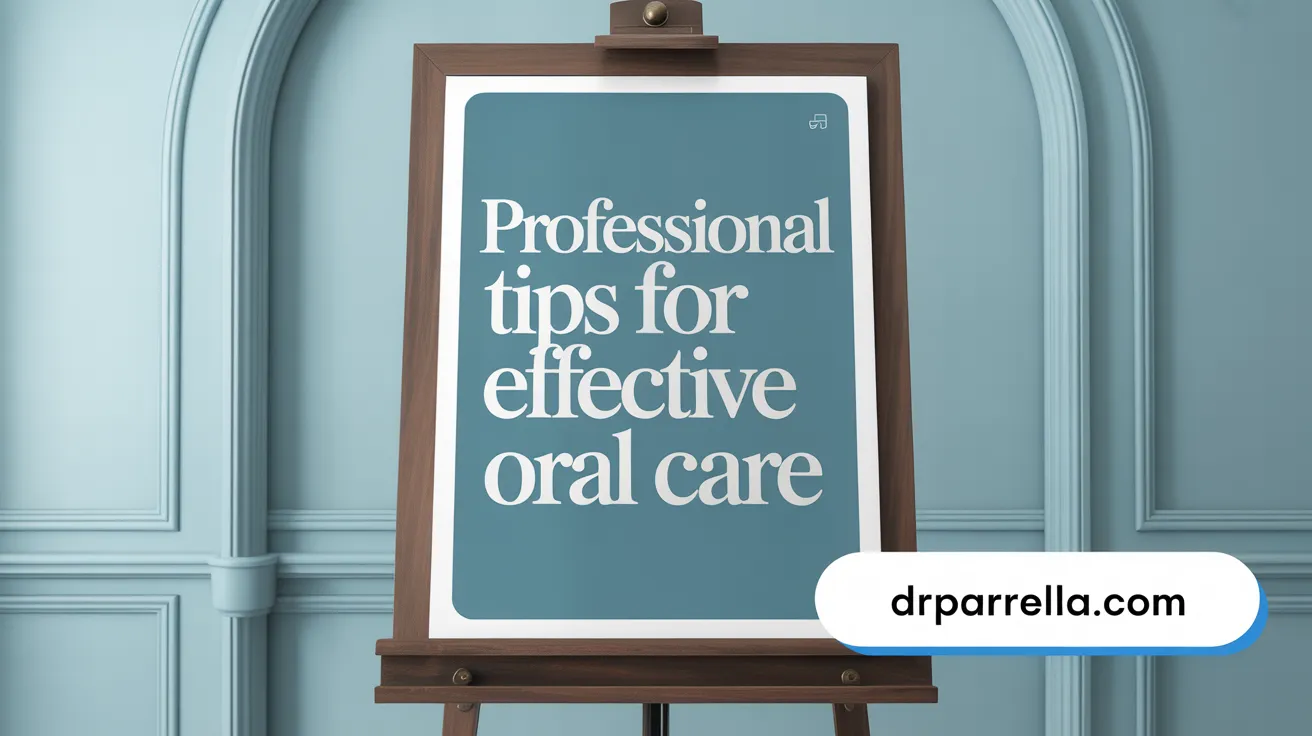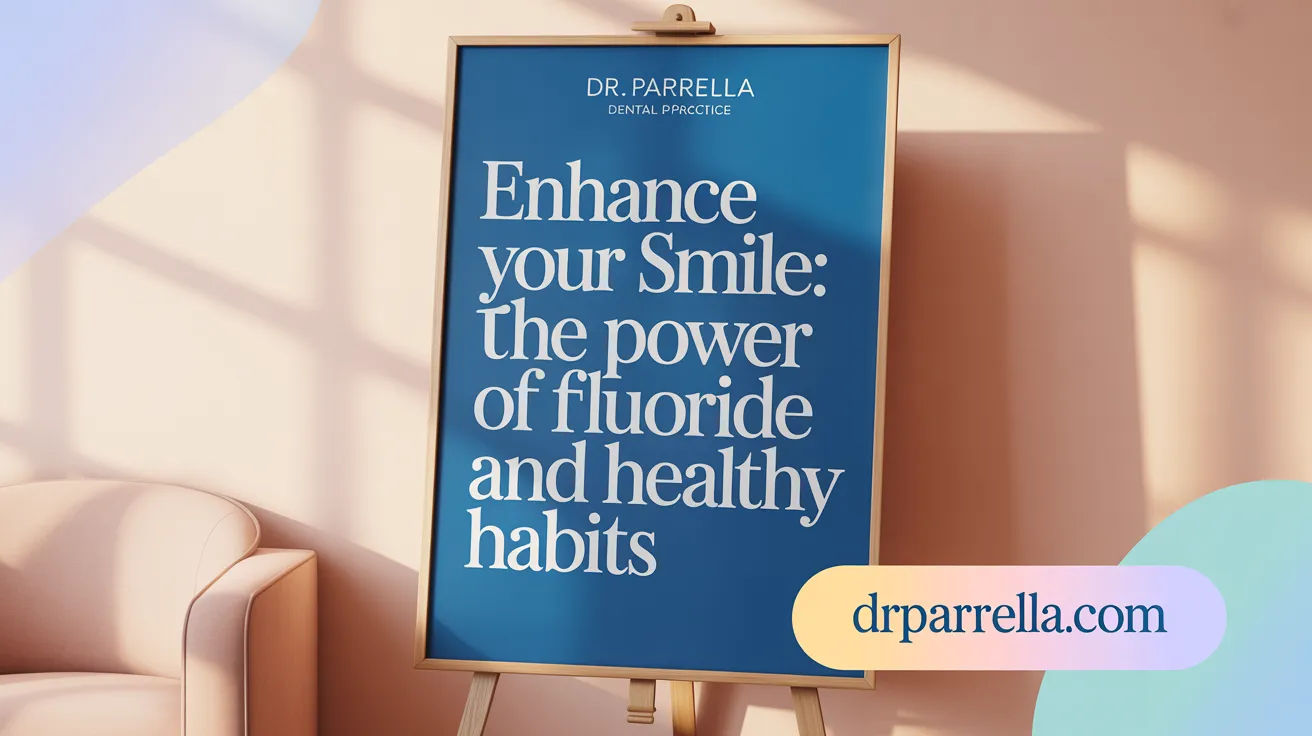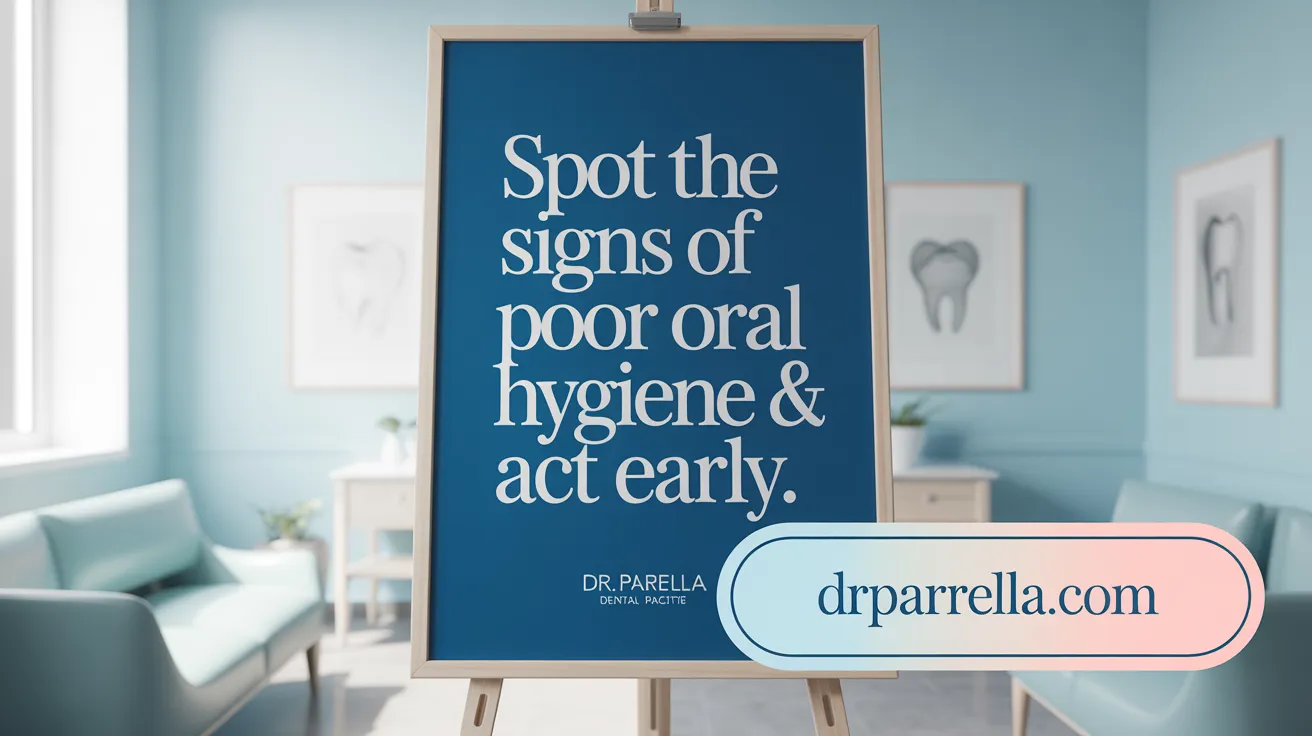Why Oral Hygiene Matters Beyond a Bright Smile
Maintaining excellent oral hygiene is essential not only for a confident smile and fresh breath but also as a critical component of overall health. Scientific evidence increasingly links oral health with systemic conditions such as cardiovascular disease, diabetes, and even pregnancy complications, highlighting the importance of daily care practices. This guide, drawing upon dental experts' insights and evidence-based recommendations, will provide you with comprehensive tips for establishing and sustaining a robust oral hygiene routine that supports lifelong health.
<!-- VIDEO:eyJsaW5rIjoiaHR0cHM6Ly93d3cueW91dHViZS5jb20vd2F0Y2g/dj1rRzBiSG1LTEdfVSIsImltYWdlVXJsIjoiaHR0cHM6Ly9lbmNyeXB0ZWQtdnRibjAuZ3N0YXRpYy5jb20vdmlkZW8/cT10Ym46QU5kOUdjUXQwWm96RGh5MFpta0N0ak0tQXBoOFZrU21yMzRldEctVWNBIiwidGl0bGUiOiJXb3JsZCBPcmFsIEhlYWx0aCBEYXk6IFRocmVlIEV4cGVydCBUaXBzIEZvciBBIEhlYWx0aHkgTW91dGgiLCJzbmlwcGV0IjoiQ2VsZWJyYXRlIFdvcmxkIE9yYWwgSGVhbHRoIERheSAyMDI1IHdpdGggdGhlc2UgdGhyZWUgZXhwZXJ0IHRpcHMgdG8ga2VlcCBvbiB0b3Agb2YgeW91ciBvcmFsIGhlYWx0aC4g4pyU77iPQnJ1c2ggdHdpY2UgYSBkYXkgZm9yIHR3byBtaW51dGVzwqAuLi4ifQ== -->Understanding the Crucial Link Between Oral and Overall Health
Why is maintaining good oral health important and how is it linked to overall health?
Maintaining healthy teeth and gums is not only about having a bright smile but is also vital for overall health. Good oral hygiene practices, such as regular brushing with fluoride toothpaste and daily flossing, help prevent common dental issues like cavities and gum disease. These conditions, if left untreated, can lead to pain, tooth loss, and difficulty in speaking, eating, and facial expressions.
More importantly, research has established a strong connection between oral health and systemic health. Chronic periodontal disease, characterized by persistent gum inflammation, has been linked with increased risks of heart disease, stroke, diabetes complications, and even Alzheimer’s disease. These links occur through several mechanisms. For example, bacteria from oral infections can enter the bloodstream, leading to inflammation elsewhere in the body. Additionally, systemic conditions like diabetes can exacerbate gum disease, creating a vicious cycle.
Factors such as smoking, poor diet, stress, and underlying health issues influence both oral and overall health, making integrated healthcare essential. Regular dental visits and good oral hygiene routines can help detect early signs of systemic diseases and prevent their progression.
In conclusion, good oral health is a foundation for overall well-being. By maintaining optimal dental hygiene and understanding its link to health, individuals can reduce risks of serious health problems and improve their quality of life.
More about the connection between oral health and systemic diseases
[Search: oral health and systemic diseases connection]
This ongoing research underscores the importance of viewing oral health as an integral part of general health, requiring collaboration between dental and medical professionals to promote holistic care.
Daily Oral Hygiene Practices Backed by Dental Experts
 Maintaining optimal oral health hinges on consistent, expert-approved routines that include proper brushing and flossing, tongue cleaning, mouthwash use, and regular dental visits.
Maintaining optimal oral health hinges on consistent, expert-approved routines that include proper brushing and flossing, tongue cleaning, mouthwash use, and regular dental visits.
Begin with brushing techniques: Dentists recommend brushing teeth at least twice a day with a fluoride toothpaste for a minimum of two minutes. Use a soft-bristled toothbrush held at a 45-degree angle against the gumline. Gently circular motions are best for effectively removing plaque without damaging gums. It’s important to cover all surfaces of each tooth, including the insides, outsides, and chewing surfaces.
Flossing is crucial to clean between teeth where a toothbrush cannot reach. Experts suggest using about 18 inches of dental floss, winding it around your fingers, and gently curving it into a C shape around each tooth. Up-and-down strokes help dislodge plaque and food debris, especially near the gumline. Doing this daily significantly reduces the risk of gingivitis and periodontitis.
Adding tongue cleaning to your routine can further improve oral hygiene. Using a tongue scraper or the back of a toothbrush daily helps remove bacteria that cause bad breath and reduces overall plaque buildup. This practice can contribute to fresher breath and healthier teeth.
Incorporate mouthwash into your routine, but remember it should complement, not replace, brushing and flossing. Antimicrobial or fluoride mouthwashes can help decrease bacteria, strengthen enamel, and provide a fresh feeling. Use mouthwash after brushing and flossing to maximize benefits.
Finally, routine dental check-ups are vital. Dental experts advise visiting your dentist at least once a year—more often if you’re at higher risk of dental problems—to receive professional cleaning, early diagnosis, and personalized advice tailored to your needs.
By following these evidence-based practices, you bolster your defenses against cavities, gum disease, and other oral health issues, ensuring a healthier, brighter smile for years to come.
Techniques and Best Practices Recommended by Dental Professionals
 Proper dental care practices are essential for maintaining healthy teeth and gums, and dental professionals emphasize specific techniques for effective oral hygiene. To start, it is recommended to brush teeth at a 45-degree angle toward the gumline, using gentle circular motions. This technique helps remove plaque effectively while protecting the gums from damage. Brushing should last at least two minutes, ensuring all surfaces—front, back, and chewing surfaces—are thoroughly cleaned. Using a soft-bristled fluoride toothpaste enhances enamel strength and provides cavity protection.
Proper dental care practices are essential for maintaining healthy teeth and gums, and dental professionals emphasize specific techniques for effective oral hygiene. To start, it is recommended to brush teeth at a 45-degree angle toward the gumline, using gentle circular motions. This technique helps remove plaque effectively while protecting the gums from damage. Brushing should last at least two minutes, ensuring all surfaces—front, back, and chewing surfaces—are thoroughly cleaned. Using a soft-bristled fluoride toothpaste enhances enamel strength and provides cavity protection.
Flossing daily is crucial because it removes plaque and food debris from between teeth and below the gumline where brushes cannot reach. Proper flossing involves winding about 18 inches of floss around the fingers, gently curving it into a 'C' shape around each tooth, and moving it up and down to clean the sides. For people who find traditional floss challenging, interdental tools like interdental brushes or water flossers offer effective alternatives.
In addition to daily brushing and flossing, tongue cleaning with a scraper or toothbrush helps reduce bacteria responsible for bad breath and oral health issues. Regular dental visits—usually every six months—are vital for professional cleanings, early detection of problems, and removal of tartar that cannot be eliminated at home.
Lifestyle factors also play a role; maintaining a balanced diet low in sugary and acidic foods supports oral health. Avoiding tobacco products decreases the risk of gum disease and oral cancer, while limiting alcohol intake further reduces correlated risks. Using antimicrobial mouthwashes can reduce bacterial activity and plaque buildup.
Replacing toothbrushes every three to four months ensures effective cleaning, as worn bristles lose efficiency. Special considerations include managing oral health during pregnancy, caring for dentures, and addressing individual risk factors with personalized dental advice. Following these professional-endorsed practices helps ensure a comprehensive approach to oral health, promoting a healthy, attractive smile for life.
Establishing and Maintaining a Consistent Oral Hygiene Routine
Creating an effective daily oral hygiene routine begins with simple, consistent steps. The foundation is brushing teeth thoroughly twice a day for at least two minutes each time, ideally after meals or snacks. Use a soft-bristled toothbrush and fluoride toothpaste, positioning the brush at a 45-degree angle toward the gumline, and employ gentle, circular motions. This technique helps remove plaque—a sticky film of bacteria that can cause cavities and gum disease.
In addition to brushing, daily flossing or interdental cleaning is crucial to remove food particles and plaque from between teeth and beneath the gumline, areas that brushing alone cannot reach. Using about 18 inches of floss, curve it into a 'C' shape around each tooth and move it up and down gently. For those with dental appliances or difficulty flossing, tools like interdental brushes or water flossers can be effective alternatives.
Supporting your routine with regular tongue cleaning—using a tongue scraper or toothbrush—helps eliminate bacteria responsible for bad breath and reduces bacterial buildup in the mouth.
Rinsing with an antiseptic or alcohol-free mouthwash can further reduce harmful bacteria and freshen breath. Remember to replace your toothbrush every three months or sooner if the bristles become frayed, ensuring effective cleaning.
Maintaining routine dental visits for professional cleaning and checkups is essential for early detection of dental issues. Supporting good oral health also involves lifestyle choices: eating a balanced diet low in sugars and acids, avoiding tobacco products, and limiting sugary foods and drinks to prevent cavities and gum disease.
By integrating these habits into your daily life, you can establish and sustain an effective oral hygiene routine, contributing to healthy teeth and gums for a lifetime.
The Role of Fluoride, Diet, and Habits in Preventing Dental Problems
 Fluoride plays a vital part in protecting teeth from decay by strengthening the enamel through a process called remineralization. When fluoride is present, it helps repair early enamel damage and makes teeth more resistant to acids produced by bacteria in plaque. This is why community water fluoridation, fluoride varnishes, gels, and fluoride-rich toothpaste are proven to significantly reduce the risk of cavities. These fluoride treatments are supported by extensive scientific research as effective preventive tools.
Fluoride plays a vital part in protecting teeth from decay by strengthening the enamel through a process called remineralization. When fluoride is present, it helps repair early enamel damage and makes teeth more resistant to acids produced by bacteria in plaque. This is why community water fluoridation, fluoride varnishes, gels, and fluoride-rich toothpaste are proven to significantly reduce the risk of cavities. These fluoride treatments are supported by extensive scientific research as effective preventive tools.
Diet also heavily influences oral health, especially through the consumption of fermentable sugars like candies, soda, and processed foods. Bacteria in the mouth feed on these sugars and produce acids that demineralize tooth enamel, leading to cavities and erosion. Limiting sugary snacks and drinks, avoiding frequent snacking, and rinsing with water after eating help reduce acid attacks. A balanced diet high in calcium, phosphate, and vitamin D supports strong enamel and overall oral resilience.
In addition to fluoride and diet, healthy daily habits are essential. Proper brushing with fluoride toothpaste, flossing, and avoiding harmful behaviors such as smoking greatly contribute to preventing gum disease and other dental issues. Habits like smoking and excessive alcohol consumption can increase inflammation, stain teeth, and elevate the risk of oral cancers.
By combining fluoride use, a nutritious diet, and good habits, you create a comprehensive strategy to prevent common dental problems such as cavities, gum disease, and erosion. Regular dental check-ups further help monitor and maintain oral health over time, ensuring that preventive measures are effective and tailored to individual needs.
Essential Oral Care Products, Tools, and Lifestyle Recommendations
 Maintaining optimal oral health involves a combination of effective products, proper techniques, and healthy habits. Selecting the right tools and adopting good lifestyle practices are crucial for long-term dental well-being.
Maintaining optimal oral health involves a combination of effective products, proper techniques, and healthy habits. Selecting the right tools and adopting good lifestyle practices are crucial for long-term dental well-being.
When it comes to toothbrushing, it is recommended to use a soft-bristled toothbrush replaced every three to four months. Brushing twice daily with fluoride toothpaste for at least two minutes, and holding the brush at a 45-degree angle to the gumline with gentle, circular motions, helps remove plaque without damaging gums or enamel.
Flossing daily is essential to clean between teeth and under the gumline, areas that toothbrushes alone cannot reach. Individuals who find traditional floss difficult can opt for interdental brushes, water flossers, or floss holders, which can provide effective alternatives.
Incorporating antimicrobial mouthwashes into your routine can further reduce bacteria and plaque buildup. Alcohol-free formulas are recommended, especially for those with dry mouth or sensitive gums.
Diet and hydration also play significant roles. Eating a balanced diet low in sugary and acidic foods helps prevent cavities and enamel erosion. Drinking fluoridated water continuously supplies a natural, ongoing defense against tooth decay.
Avoiding tobacco use and oral piercings is vital, as these habits increase risks for gum disease, oral cancers, and tooth damage. Regular dental checkups, ideally every six months, allow for professional cleanings, early detection of issues, and tailored advice based on individual risk factors.
Overall, combining the use of appropriate products with healthy lifestyle choices and professional guidance creates a comprehensive approach to long-lasting oral health, supporting a confident smile and overall well-being.
Recognizing Poor Oral Hygiene Signs and Preventive Strategies

What are the common signs of poor oral hygiene and what preventive measures can be taken to avoid dental problems?
Poor oral hygiene can manifest through several noticeable symptoms that indicate dental and gum issues. These include persistent bad breath, bleeding or swollen gums, tooth sensitivity, visible plaque or tartar buildup, and changes in tooth color, such as discoloration or staining.
If left unaddressed, these signs can lead to more serious conditions like cavities, gingivitis, periodontitis, and even tooth loss. To prevent these issues, maintaining a consistent oral care routine is crucial. This involves brushing twice daily with fluoride toothpaste, paying attention to all tooth surfaces and the tongue. Daily flossing or using interdental brushes effectively removes plaque and food particles between teeth.
Regular dental checkups—typically every six months—allow for early detection and treatment of oral problems. Dentists can perform professional cleanings to remove tartar and provide guidance tailored to individual risk factors.
In addition to good daily habits, lifestyle choices play a vital role. Limiting sugary foods and drinks reduces the food sources for harmful bacteria, while avoiding tobacco products helps prevent gum disease and oral cancers. Eating a balanced diet rich in fruits, vegetables, and dairy supports strong teeth and gums.
Addressing early signs like mouth sores or inflammation promptly with the help of a dental professional can prevent the progression to more complex health issues. Overall, diligent oral hygiene and mindful lifestyle adjustments are key strategies for safeguarding dental health and reducing systemic health risks associated with poor oral care.
Sustaining Healthy Smiles Through Expert Care and Daily Practice
Adopting expert-backed daily oral hygiene practices is essential not only for maintaining healthy teeth and gums but also for supporting overall systemic health. Regular brushing, flossing, tongue cleaning, and the use of appropriate oral care products, combined with lifestyle choices such as balanced nutrition and avoiding tobacco, form the foundation of effective dental care. Equally important are routine dental visits that allow early detection and professional intervention. By integrating these evidence-based strategies into your daily routine, you can prevent common oral diseases, enhance your well-being, and enjoy a lifetime of confident smiles.
